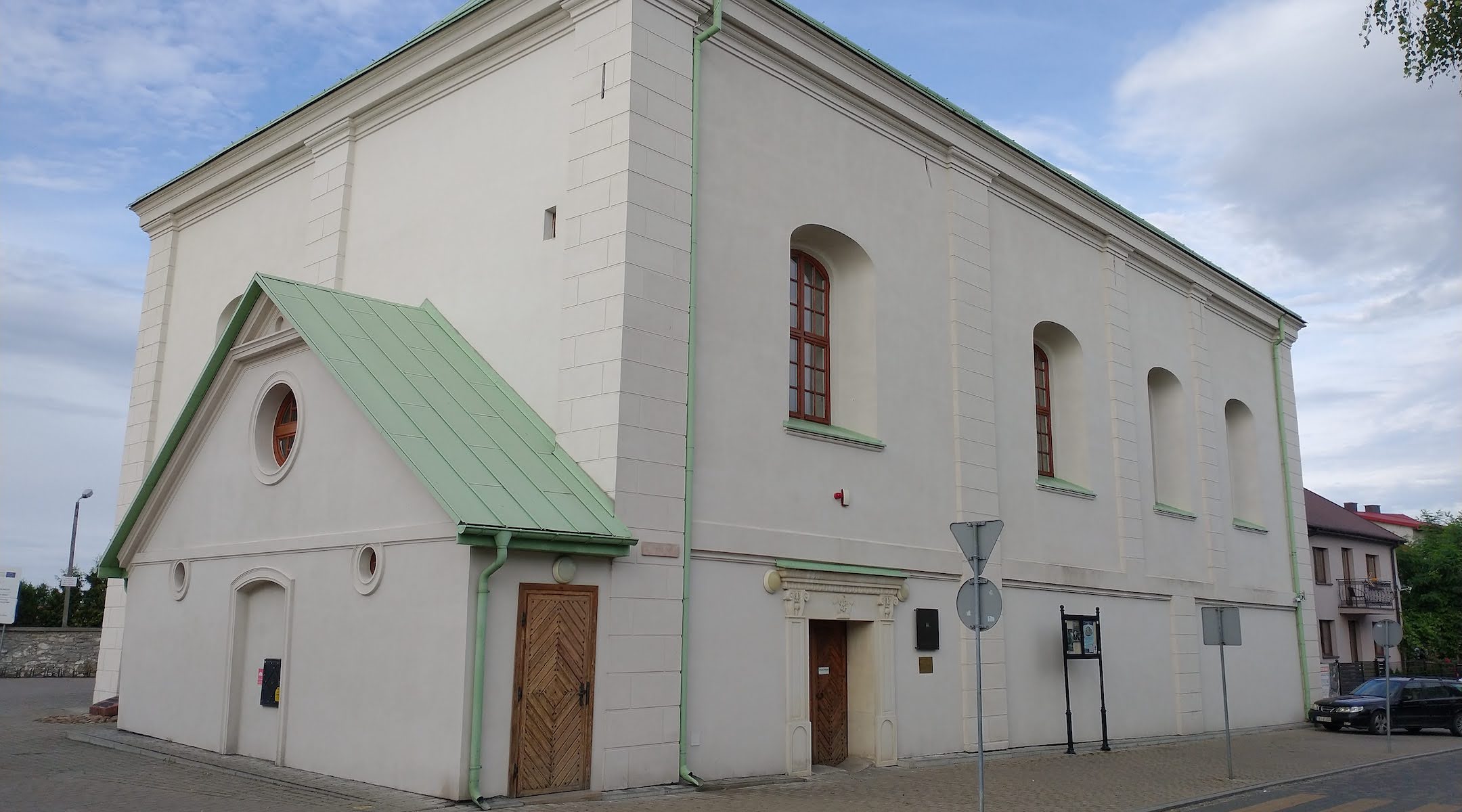Mikvah discovered in basement of former strip club in Poland
The town of Chmielnik, Poland, was once home to a thriving Jewish community that was almost entirely wiped out in the Holocaust

The former synagogue in Chmielnik, Poland. (Wojciech Domagała/Wikimedia Commons)
(JTA) — Before the Holocaust, the population of the town of Chmielnik, Poland, was around 80% Jewish. Sephardic Jews, having been expelled from Spain during the Inquisition, settled in Chmielnik and eventually built a synagogue in 1638.
After the war, only four Jews remained. Today, the building houses a museum of the town’s Jewish life and history.
Now another Jewish heritage site has been discovered, in an unlikely place.
A few years ago, Marian Zwolski, a businessman from Chmielnik, purchased a former nightclub that has been closed for 15 years. When he opened the door to the basement of his new property, he discovered something unexpected: a mikvah, or Jewish ritual bath.
The bath’s blue and white floor tiles are still there, as are Stars of David on the wall. A smaller mikvah, likely used by women, is in a neighboring room.
“It’s astonishing,” said Meir Bulka, who advocates for the preservation of Jewish heritage in Poland, in an interview with Haaretz. “You enter the basement, and you’re in another world. It’s like a time capsule.”
A businessman purchased an abandoned building in Chmielnik, and discovered a mikveh underneath. Now, he is looking for investors to help him establish a heritage site and preserve the town's Jewish historyhttps://t.co/ag22cvHjeZ
— Ofer Aderet עופר אדרת (@oferaderet) August 20, 2023
Just up the stairs from the mikvah — which is full of water — are remnants of the former Sphinx club: a Heineken sign, a pole for strippers, decorations of ancient Egypt and plenty of mold and leaks, according to the Haaretz report.
Zwolski, who also operates a funeral home in nearby Kielce — the site of a 1946 pogrom that killed 42 Jews — told Haaretz he is hoping to turn his new mikvah into a tourist attraction, possibly a museum.
“I was born and raised here, so I care about the history of the place. I don’t want it to disappear,” Zwolski says. “I encourage the people to remember the past and I also call on you, the Jews, to preserve it and see to it that it is memorialized.”
This article originally appeared on JTA.org.















